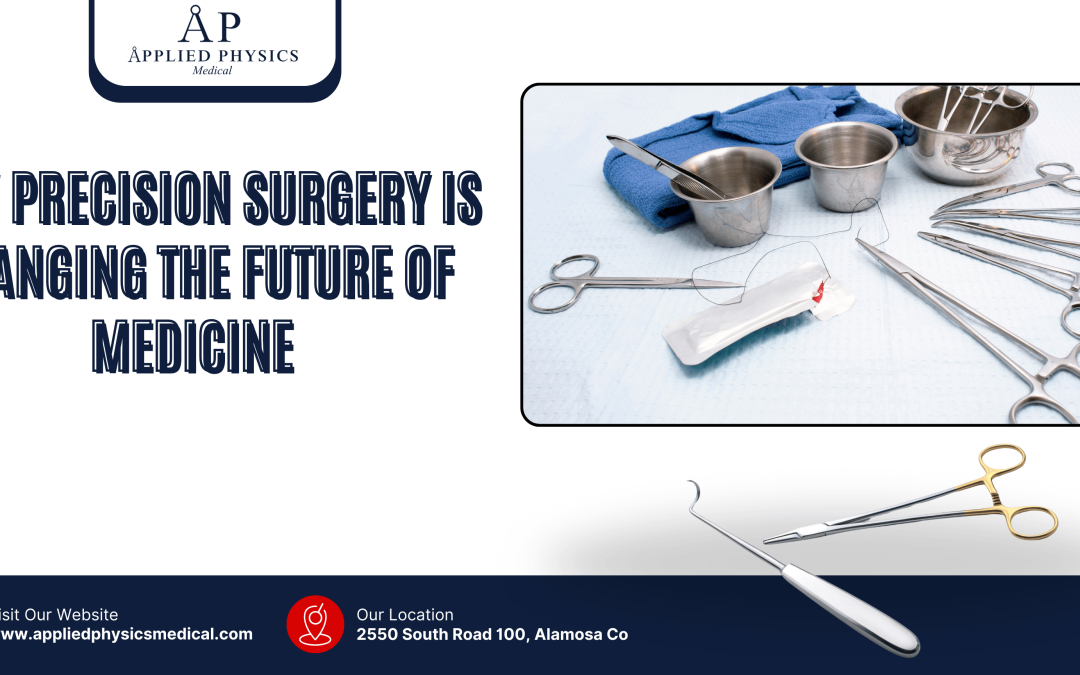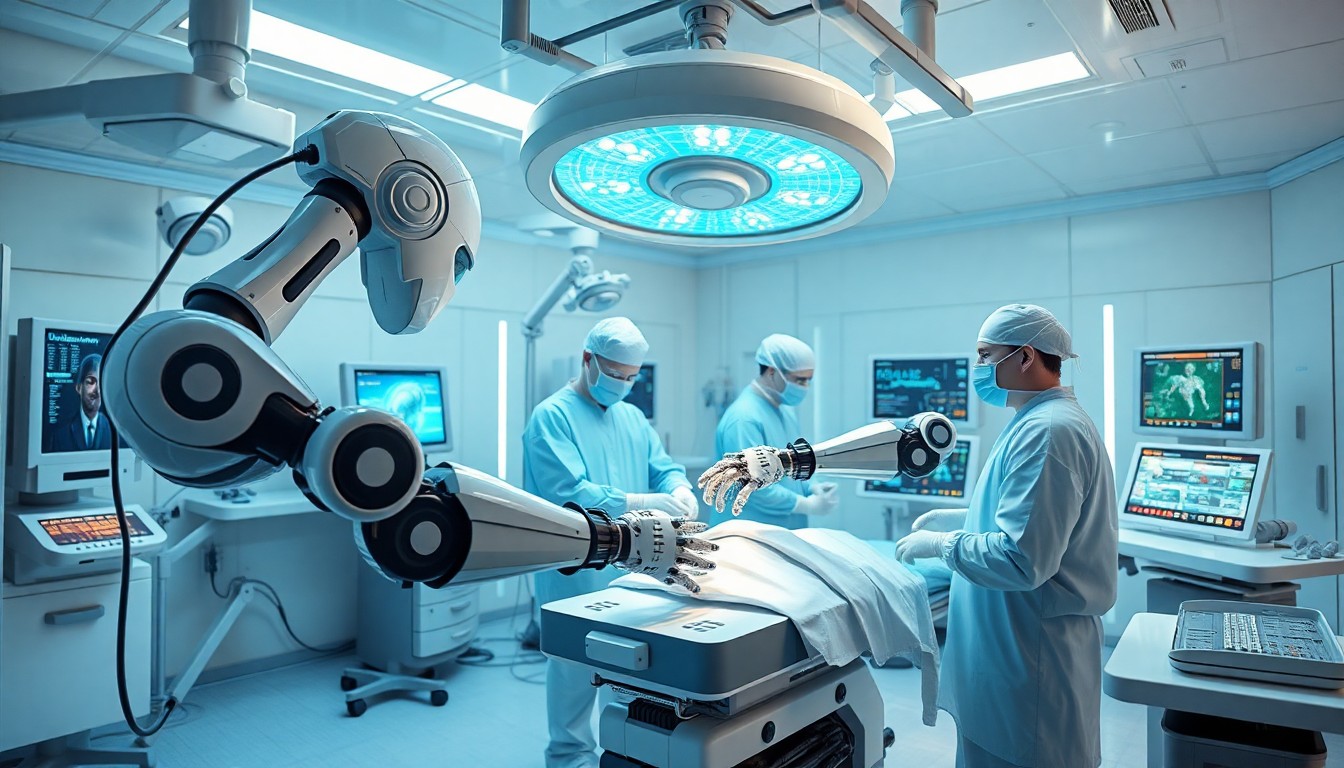Introduction
Precision surgery represents a transformative approach in the field of medicine, emphasizing tailored interventions that cater to the unique anatomical and physiological characteristics of individual patients. This paradigm shift moves away from the traditional “one-size-fits-all” methodology, which often results in variable outcomes and prolonged recovery times. Instead, precision surgery integrates advanced imaging techniques, genetic profiling, and data analytics to create personalized surgical plans that enhance efficacy and minimize risks.
The concept of precision surgery is rooted in the broader movement towards precision medicine, which seeks to customize healthcare based on individual variability. By leveraging detailed patient data, including genetic information and specific disease markers, surgeons can make informed decisions that optimize surgical interventions. This approach not only improves the precision of surgical techniques but also fosters a deeper understanding of the underlying mechanisms of diseases, paving the way for more effective treatments.
Key Takeaways
- Precision surgery is revolutionizing the future of medicine by allowing for more targeted and personalized treatments.
- The impact of precision surgery on patient outcomes is significant, leading to improved survival rates and reduced side effects.
- Advancements in technology, such as robotics and imaging, are driving the development and success of precision surgery.
- In oncology, precision surgery is leading to targeted treatments and improved survival rates for cancer patients.
- While precision surgery offers great potential, there are still challenges and limitations that need to be addressed for its widespread adoption in medicine.
The Impact of Precision Surgery on Patient Outcomes
Reduced Complications and Enhanced Recovery
For instance, studies have shown that patients undergoing precision-guided surgeries experience fewer adverse events compared to those receiving standard surgical care. This improvement is particularly evident in complex procedures where traditional methods may pose higher risks.
Improved Long-Term Outcomes
Moreover, precision surgery has been linked to improved long-term outcomes. For example, in orthopedic surgeries, personalized approaches that consider a patient’s specific anatomy and lifestyle can lead to better functional results and higher satisfaction rates.
Reshaping Patient Expectations
As a result, patients are not only recovering faster but also returning to their daily activities with greater confidence and less pain. This shift towards individualized care is reshaping the expectations of patients and healthcare providers alike, with precision surgery at the forefront of this change,
A New Era in Healthcare
ultimately leading to better patient outcomes and improved quality of life.
Advancements in Technology Driving Precision Surgery
Technological advancements are at the forefront Innovations such as high-resolution imaging techniques, including MRI and CT scans, allow surgeons to visualize complex anatomical structures with unprecedented clarity. These imaging modalities enable precise mapping of tumors or other pathological conditions, facilitating more accurate surgical planning and execution.
In addition to imaging technologies, the integration of artificial intelligence (AI) and machine learning is further enhancing precision surgery. AI algorithms can analyze vast amounts of patient data to identify patterns and predict outcomes, assisting surgeons in making informed decisions during procedures. For instance, AI-driven tools can help determine the optimal surgical approach based on a patient’s unique characteristics, thereby improving overall surgical success rates.
Precision Surgery in Oncology: Targeted Treatments and Improved Survival Rates
| Treatment Type | Survival Rate | Side Effects |
|---|---|---|
| Targeted Therapy | Increased | Minimal |
| Immunotherapy | Varies | Immune-related |
| Precision Surgery | Improved | Depends on procedure |
In the realm of oncology, precision surgery has emerged as a game-changer in the fight against cancer. By utilizing genetic profiling and molecular diagnostics, oncologists can identify specific tumor characteristics that inform targeted surgical interventions. This approach allows for the removal of cancerous tissues while preserving healthy surrounding structures, ultimately leading to better functional outcomes for patients.
The impact of precision surgery in oncology is underscored by improved survival rates. For example, patients with breast cancer who undergo precision-guided lumpectomies often experience lower recurrence rates compared to those treated with conventional methods. Furthermore, the ability to tailor surgical strategies based on individual tumor biology has led to advancements in adjuvant therapies, enhancing overall treatment efficacy and patient prognosis.
The Role of Robotics in Precision Surgery
Robotic-assisted surgery has become an integral component of precision surgery, offering enhanced dexterity and visualization during complex procedures. Robotic systems allow surgeons to perform minimally invasive surgeries with greater precision than traditional techniques. The use of robotic arms equipped with high-definition cameras provides surgeons with a 3D view of the surgical field, enabling them to navigate intricate anatomical structures with remarkable accuracy.
The benefits of robotic surgery extend beyond improved precision; they also include reduced recovery times and minimized postoperative pain for patients. For instance, robotic-assisted prostatectomies have been associated with shorter hospital stays and quicker return to normal activities compared to open surgeries. As technology continues to evolve, the role of robotics is expected to expand further, offering new possibilities for complex surgical interventions.
Challenges and Limitations of Precision Surgery
High Costs and Limited Access
One significant hurdle is the high cost associated with advanced technologies and robotic systems. The financial burden can limit access to precision surgical techniques, particularly in resource-constrained healthcare settings. This limitation can hinder the widespread adoption of making it inaccessible to patients who could greatly benefit from it.
Training and Skill Disparities
Additionally, the training required for surgeons to effectively utilize these technologies can be extensive, creating disparities in skill levels across different institutions. This can lead to inconsistent outcomes and unequal access to quality care. As a result, it is essential to develop comprehensive training programs that can bridge the gap in skill levels and ensure that all surgeons have the necessary expertise to perform precision surgery.
Data Management and Security
Another challenge lies in the integration of diverse data sources necessary for precision surgery. The effective use of genetic information, imaging data, and patient history requires robust data management systems that can seamlessly compile and analyze this information. Ensuring data security and patient privacy is also paramount as healthcare increasingly relies on digital solutions. This requires the development of secure and reliable data management systems that can protect sensitive patient information while facilitating the exchange of data between healthcare providers.
Overcoming Challenges
Overcoming these challenges will be essential for maximizing the potential of clinical practice. By addressing the high costs, training disparities, and data management issues, healthcare providers can ensure that precision surgery becomes a widely accessible and effective treatment option for patients.
Future Implications and Potential of Precision Surgery in Medicine
Looking ahead, the future implications of precision surgery are vast and promising. As research continues to uncover new biomarkers and genetic insights into various diseases, the potential for even more personalized surgical approaches will expand. This evolution could lead to breakthroughs in treating cancer and other complex conditions such as cardiovascular diseases and neurological disorders.
Moreover, as technology advances, we may witness the emergence of fully automated surgical systems capable of performing procedures with minimal human intervention. Such innovations could revolutionize surgical practice by enhancing efficiency and reducing outcome variability. Ultimately, the ongoing development holds the potential to redefine standards of care in medicine, leading to improved patient experiences and outcomes across diverse medical fields.
Conclusion
Precision surgery is revolutionizing medicine by enhancing the accuracy of surgical procedures, leading to improved patient outcomes. With advancements in technology, such as robotic systems and real-time imaging, surgeons can perform complex operations with greater precision and minimal invasiveness. This approach reduces recovery times, lowers the risk of complications, and improves overall patient satisfaction. As continues to evolve, it holds the promise of personalized treatment plans tailored to individual patients’ needs. Ultimately, it is setting new standards in healthcare, making surgeries safer and more effective.


